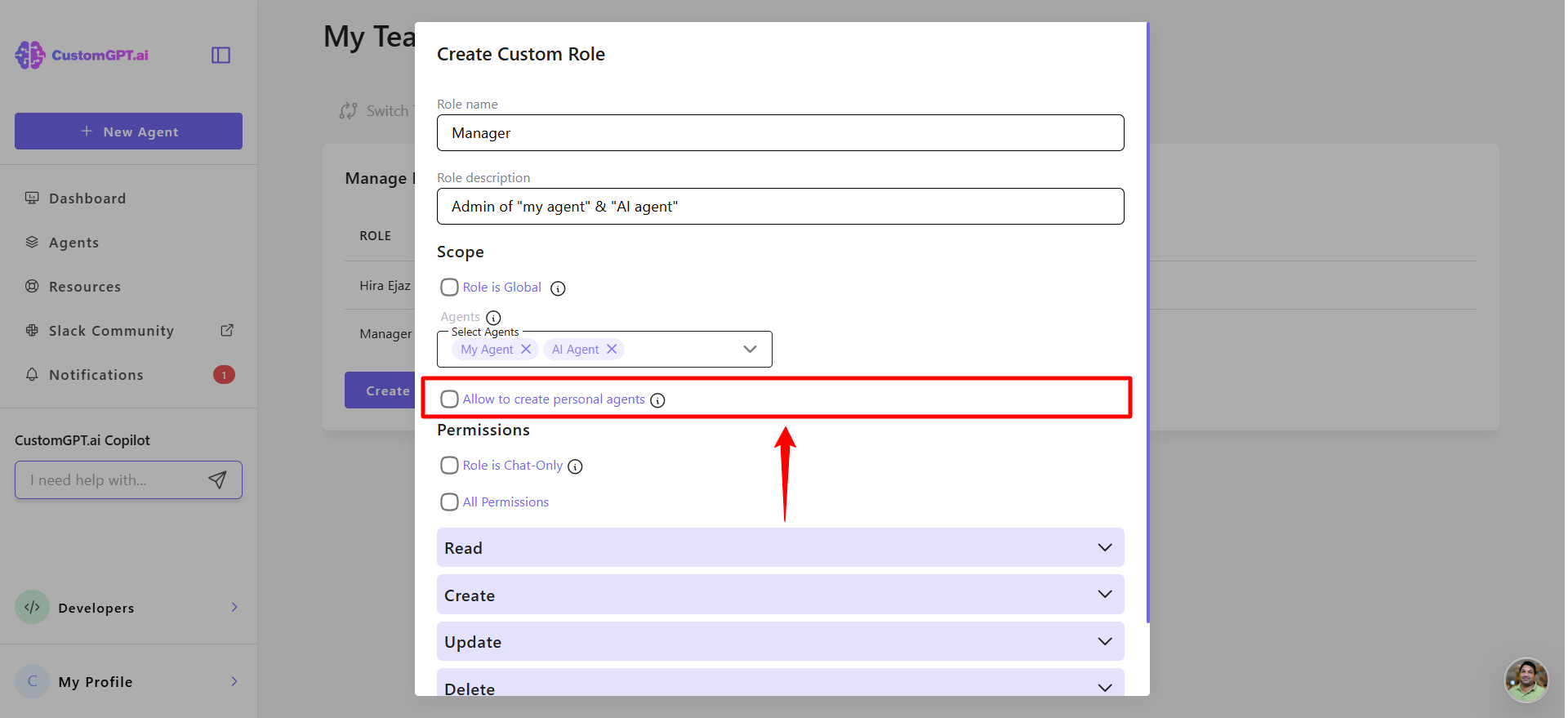How personal agents work
This step-by-step guide explains how personal agents function in CustomGPT for Teams, who can create them, and how administrators manage access and permissions.
Note:Agent-specific roles are part of the CustomGPT for Teams package. If you are interested in activating it, please contact our sales team.
What are personal agents?
Personal agents are private agents that individual team members can create when their role includes the Allow to create personal agents permission.
They are visible only to the creator and cannot be accessed by other team members unless an administrator grants additional permissions.
Personal agents let you:
- Experiment and test ideas in a private workspace.
- Customize and configure agents independently.
- Build localized agents while working under team-level governance.

👉 Learn more in Allow users to create their personal agents.
Who can create personal agents
Members who are allowed to create personal agents. These members can:
- Build and configure their agents, including prompts, integrations, and appearance.
- Manage agent behavior and settings.
- View the full personal conversation history for their agents.
However, they cannot:
- Edit or change share settings.
- Share their agents with other team members.
- Make their agents public.
Only administrators or global roles with sharing permissions can manage those options.
How administrators manage personal agents
Administrators retain complete control over all personal agents created within the team.
They can:
- View, edit, or delete any personal agent.
- Grant or revoke share and publish permissions at any time.
- Give sharing rights to the original author or to other members.
- Receive notifications when a team member creates a new agent.
- Access personal agent's conversations.
This ensures full oversight and compliance across the organization while allowing members to create their own agents.
Why use personal agents
Personal agents provide flexibility for teams that need both privacy and governance. They help you:
- Empower members to innovate without affecting shared agents.
- Keep administrative control over publishing and visibility.
- Enable safe experimentation within managed boundaries.
Related guides
Updated 4 months ago
